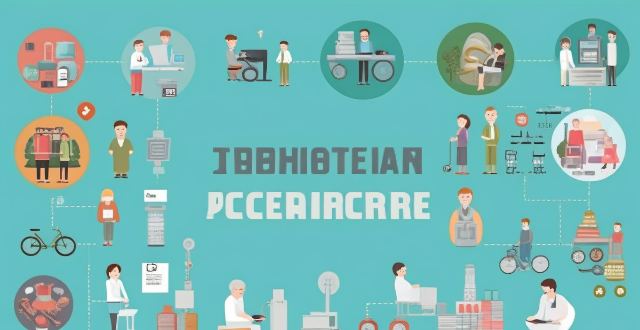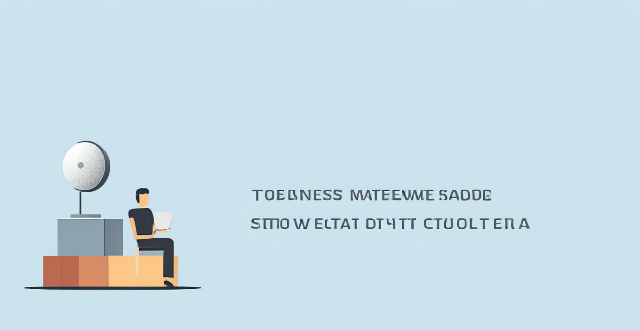Management Care

How does predictive analytics help in disease prevention and management within the healthcare system ?
Predictive analytics in healthcare can significantly improve disease prevention and management by identifying patterns and trends in patient data. It offers benefits such as early intervention, personalized treatment plans, enhanced operational efficiency, and informed decision-making. Applications include disease surveillance, chronic disease management, and patient care optimization. However, challenges like data privacy, quality, and the need for skilled data analysts must be addressed to fully realize its potential.

How does telemedicine improve patient care and access to health services ?
Telemedicine improves patient care and access to health services by increasing accessibility for both rural and urban patients, enhancing continuity of care, offering cost efficiency, providing a better patient experience through personalized care and convenience, and enabling data-driven decision making.

How are robotics changing surgery and patient care in hospitals ?
The integration of robotics in hospitals is revolutionizing surgery and patient care by enhancing precision, reducing recovery time, increasing accessibility to specialized care, improving training and education, streamlining operations, and fostering personalized medicine. Robotic-assisted surgery offers greater accuracy and minimally invasive techniques, leading to quicker healing and less trauma for patients. Telerobotic surgery expands access to expert care across geographical barriers. Simulation technologies provide a safe environment for surgical practice and the development of new techniques. Automation improves hospital efficiency, from dispensing systems to record management. Personalized medicine is facilitated through customized treatment plans tailored to individual patient needs. Overall, robotics is transforming healthcare delivery, making it more efficient, effective, and accessible.

What role do healthcare workers play in effective pandemic management ?
The role of healthcare workers in effective pandemic management includes diagnosis and treatment, prevention and control measures, contact tracing and testing, vaccination programs, mental health support, and collaboration with other healthcare professionals. Their expertise and dedication are crucial in reducing the spread of the virus and improving patient outcomes.

How do I provide care for someone experiencing anaphylactic shock ?
Anaphylactic shock is a severe allergic reaction that requires immediate care. To provide care for someone experiencing it, recognize the symptoms like skin reactions and respiratory distress, call for emergency help, use an epinephrine auto-injector if available, position the person comfortably, loosen tight clothing, keep them calm, monitor vital signs, and follow instructions from emergency personnel. Timely action can greatly improve the chances of recovery.

How do I care for and maintain my luxury purchases ?
This guide offers comprehensive advice on how to care for various luxury items, including designer handbags, fine jewelry, high-end watches, leather goods, and shoes/apparel. It emphasizes the importance of following manufacturer's instructions, proper storage, gentle handling, regular maintenance, and insurance. Specific tips are provided for each type of luxury item, such as cleaning methods, protection against water damage, and professional check-ups. The guide also suggests avoiding harsh chemicals, focusing on quality over quantity, and seeking professional help for specialized care. By implementing these strategies, individuals can maintain the beauty and functionality of their luxury purchases for years to come.

How can we ensure equitable access to healthcare during pandemic management ?
The article emphasizes the significance of equitable healthcare access during pandemics like COVID-19. It outlines various strategies to achieve this goal, including implementing universal health coverage, utilizing community health workers, expanding telehealth services, managing supply chains efficiently, conducting public education campaigns, providing financial support to vulnerable groups, and fostering collaborative partnerships. These measures aim to ensure that everyone has equal opportunities to receive medical care, regardless of their socio-economic status, race, ethnicity, or geographic location.

How to care for and maintain your sports fashion garments ?
Sporting fashion garments are designed to be both stylish and functional, but they also require special care to maintain their quality and appearance. Here are some tips on how to properly care for and maintain your sports fashion garments: Washing instructions include reading the label, sorting clothes, using a gentle detergent, hand washing or machine washing on delicate cycle, and avoiding tumble drying. Maintenance tips include storing properly, avoiding ironing, spot cleaning stains, rotating garments, and repairing tears and holes. By following these care and maintenance tips, you can extend the lifespan of your sports fashion garments and keep them looking their best for years to come.

Do sports rehabilitation centers offer preventative care to avoid future injuries ?
Sports rehabilitation centers play a crucial role in offering preventative care services to help individuals avoid future injuries. They provide comprehensive assessments, customized exercise programs, education and training, utilize advanced equipment and technology, and collaborate with healthcare professionals to improve overall health and reduce the risk of re-injury.

Are there any natural or organic feminine care products available in the market ?
Natural and organic feminine care products have become increasingly popular as consumers seek gentler, chemical-free options for their personal hygiene. These products include natural deodorants, organic tampons and pads, shampoos and soaps made with plant-based ingredients, herbal remedies for menstrual pain relief, dietary supplements to support hormonal balance, and skincare solutions for feminine areas. By choosing these products, individuals can prioritize their health while also supporting sustainable practices in the beauty industry.

How can I balance work and personal life using time management techniques ?
The article provides a comprehensive guide on balancing work and personal life by employing time management techniques. It emphasizes the importance of setting clear SMART goals for both professional and personal aspects, creating a well-organized schedule, learning to say no when necessary, using time management tools, and prioritizing self-care. These strategies are aimed at helping individuals achieve a healthier work-life balance, improve productivity, and enhance overall well-being.

How can mobile communication technology be used to improve healthcare services ?
The text discusses how mobile communication technology can improve healthcare services in various ways such as telehealth and remote monitoring, electronic health records management, medical education and training, administrative efficiency, and public health surveillance. The use of virtual consultations, remote patient monitoring, centralized data storage, online learning platforms, automated appointment scheduling, disease tracking, and vaccine management are some examples provided. The conclusion states that these technologies will play a vital role in shaping the future of healthcare delivery.

What are some effective strategies for managing chronic conditions as part of personal health care ?
Managing chronic conditions requires a combination of self-care, education, lifestyle changes, and support from others. Developing a self-care plan, educating yourself about your condition, making healthy lifestyle choices, and seeking support from family and friends are all effective strategies for managing chronic conditions. By taking an active role in managing your symptoms and communicating effectively with your healthcare team, you can improve your overall quality of life and reduce the impact of your condition on your daily activities.

What are some effective time management techniques for women looking to balance their personal and professional lives ?
Balancing personal and professional lives is a challenge faced by many women today. Here are some effective time management techniques that can help: 1. Prioritize Tasks: Identify important tasks and create a to-do list to stay organized. 2. Set Goals: Set short-term and long-term goals, and break them down into smaller steps for easier achievement. 3. Delegate Responsibilities: Delegate household chores and work tasks to free up time and manage workload effectively. 4. Learn to Say No: Avoid overcommitment by setting boundaries and saying no to requests that do not align with your goals or priorities. 5. Take Breaks: Schedule regular breaks and incorporate relaxation techniques to manage stress and maintain productivity. 6. Use Technology Wisely: Use time management apps and automate repetitive tasks to save time and focus on more important tasks. 7. Practice Self-Care: Prioritize physical and mental health by getting enough sleep, eating well, exercising regularly, and seeking support when needed.

How can women ensure they have access to medical care and support in case of illness or injury while traveling ?
How Can Women Ensure They Have Access to Medical Care and Support in Case of Illness or Injury While Traveling? Traveling can be an exciting adventure, but it's important to ensure that you have access to medical care and support in case of illness or injury. Here are some tips for women to ensure they have access to medical care while traveling: 1. Research Before You Go: Before embarking on your journey, research the local healthcare system and facilities. Look for hospitals, clinics, and pharmacies in the area you will be visiting. Make a list of emergency numbers and keep them with you at all times. 2. Get Travel Insurance: Consider purchasing travel insurance that includes medical coverage. This will give you peace of mind knowing that you are covered in case of an unexpected illness or injury. 3. Pack a First Aid Kit: Pack a first aid kit with essential items such as bandages, antiseptic wipes, pain relievers, and any prescription medications you may need. It's also a good idea to bring along copies of your prescriptions in case you need to refill them while traveling. 4. Stay Healthy: Take steps to stay healthy while traveling. Wash your hands frequently, eat nutritious meals, drink plenty of water, and get enough sleep. Avoid risky behaviors such as excessive alcohol consumption or participating in dangerous activities without proper safety gear. 5. Seek Help When Needed: If you do become ill or injured while traveling, don't hesitate to seek medical attention. Many countries have English-speaking doctors and nurses who can provide assistance. If you are unable to communicate effectively with local healthcare providers, consider using translation services or seeking out expatriate communities for support. In conclusion, ensuring access to medical care and support while traveling is crucial for women's health and safety. By doing your research beforehand, getting travel insurance, packing a first aid kit, staying healthy, and seeking help when needed, you can enjoy your travels with peace of mind knowing that you are prepared for any potential emergencies.

What precautions should women take during menstrual health care ?
Women should maintain good hygiene, use appropriate sanitWomen should maintain good hygiene, use appropriate sanithydrated, exercise regularly, use appropriate sanitary products, stay hydrated, exercise regularly, manage stress, eat a healthy diet, and seek medical help when needed during menstrual health care.

How can blockchain technology be used in supply chain management ?
Blockchain technology is poised to revolutionize supply chain management by offering transparency, traceability, and security. Smart contracts automate transactions, while secure data sharing promotes collaboration. The technology also reduces manual processes, paperwork, and enhances compliance.

What role does recovery play in a sports health management plan ?
Recovery is a crucial component of sports health management, enhancing performance, preventing injuries, promoting mental health, and maintaining a balanced lifestyle. It involves activities like sleep, nutrition, stress reduction techniques, and time management to ensure athletes can perform at their best while staying healthy and motivated.

What is credit management ?
Credit management is the process of managing and controlling the use of credit by individuals or businesses. It involves evaluating borrowers' creditworthiness, determining the amount of credit to extend, monitoring loan repayment, and taking action for late payments. Key components include credit analysis, evaluation, loan monitoring, collections management, risk management, and customer relationship management. Effective credit management benefits include reduced default risk, improved cash flow, increased customer satisfaction, and enhanced reputation.

How does risk management relate to compliance and regulatory requirements ?
Risk management and compliance are interconnected aspects of organizational operations, aimed at safeguarding against potential losses and legal issues. Risk management identifies and prioritizes risks impacting objectives, while compliance ensures adherence to laws and regulations. An integrated approach enhances efficiency, and collaboration between departments is key for success. Regulatory requirements significantly influence risk management and compliance strategies, with direct rules and indirect environmental changes. Understanding these dynamics is vital for maintaining reputation and avoiding compliance breaches.

How do different countries approach flood control and management ?
Flood control and management strategies vary across different countries, influenced by factors such as geographic location, climate conditions, economic resources, and technological advancements. The United States relies on early warning systems, flood insurance programs, and floodplain zoning regulations. The Netherlands invests in flood barriers and dikes, water management policies, and international cooperation. China focuses on the Three Gorges Dam, flood prevention campaigns, and reforestation efforts. India adopts community-based approaches, integrated water resource management, and disaster risk reduction programs.

How does network slicing differ from traditional network management techniques ?
Network slicing, enabled by SDN and NFV, allows creating multiple virtual networks on a common infrastructure for tailored services like IoT and automotive systems. It offers dynamic resource allocation, scalability, better security, and can simplify management through automation. In contrast, traditional network management is monolithic with static resources, complex and potentially less secure. Network slicing is a more adaptable solution for diverse and growing connectivity needs.

What role does investment play in women's wealth management ?
Investing is crucial for women's wealth management, offering benefits like diversification, long-term growth, inflation protection, tax advantages, and flexibility. By wisely investing, women can enhance their financial security and achieve their financial goals.

How does yoga contribute to stress management ?
Yoga, a practice known for its relaxation benefits and overall well-being enhancement, significantly contributes to stress management. It regulates the nervous system, incorporates mindfulness and meditation, teaches breathing techniques, involves physical postures, improves sleep quality, provides social support, and encourages self-care. By practicing yoga regularly, individuals can effectively manage stress and promote mental health.

How do you maintain and care for a permanent magnet motor to extend its lifespan ?
Permanent magnet motors are widely used in various industries due to their high efficiency, power density, and reliability. However, proper maintenance and care are essential to extend the lifespan of these motors. Here are some tips on how to maintain and care for a permanent magnet motor: - Regular cleaning, lubrication, thermal management, electrical maintenance, mechanical maintenance, environmental considerations, and preventive maintenance schedule are all important aspects of maintaining a permanent magnet motor. - External and internal cleaning should be done regularly to keep the motor clean from dust, dirt, and debris. Lubrication of bearings and gearbox (if any) should be done according to the manufacturer's recommendations. - Thermal management includes ensuring that the cooling system is functioning properly and monitoring the temperature of the motor during operation. Overheating can cause damage to the magnets and other components. - Electrical maintenance involves checking all electrical connections periodically to ensure they are secure and free from corrosion. Insulation resistance should also be tested periodically to detect any potential issues before they become serious problems. - Mechanical maintenance includes ensuring that the motor shaft is properly aligned with the load and performing vibration analysis periodically to identify any mechanical issues such as imbalance or loose parts. - Environmental considerations involve storing and operating the motor in a dry environment to prevent rust and corrosion. Protection from harsh environmental conditions such as extreme temperatures, chemicals, or moisture should also be considered. - A preventive maintenance schedule should be created based on the manufacturer's recommendations and specific application requirements. Regular inspections and prompt attention to any issues will save time and money in the long run by preventing more significant problems from occurring.

How does stress management affect women's well-being ?
Stress management plays a crucial role in women's well-being, affecting their physical, mental, and emotional health. By managing stress, women can improve their immunity, sleep quality, and reduce the risk of chronic diseases. It also helps in improving mood, concentration, and reducing anxiety and depression. Stress management can lead to improved relationships, self-esteem, and increased resilience. Overall, it is essential for women's well-being and can lead to a happier and healthier life.

How can stress management contribute to better personal health ?
Stress management is crucial for maintaining physical and mental health, as it can reduce the risk of chronic diseases, improve sleep quality, boost the immune system, reduce anxiety and depression symptoms, enhance cognitive function, and increase resilience. Incorporating stress management techniques into daily routines can lead to better overall well-being and a higher quality of life.

How does ecological design address issues related to water management and consumption ?
Ecological design addresses water management and consumption issues through strategies such as rainwater harvesting, water recycling, using native plants in landscaping, installing efficient water fixtures, permeable paving, smart water management systems, and promoting education on water conservation.

What is estate planning ?
Estate planning is a comprehensive process involving the organization, management, and distribution of assets to minimize taxes and ensure wealth transfer to heirs. Key elements include wills, trusts, power of attorney, health care directives, beneficiary designations, gifting strategies, tax planning, asset protection, long-term care planning, family business succession, and charitable giving. Estate planning ensures wishes are honored, provides financial security, minimizes taxes and legal fees, and protects beneficiaries.